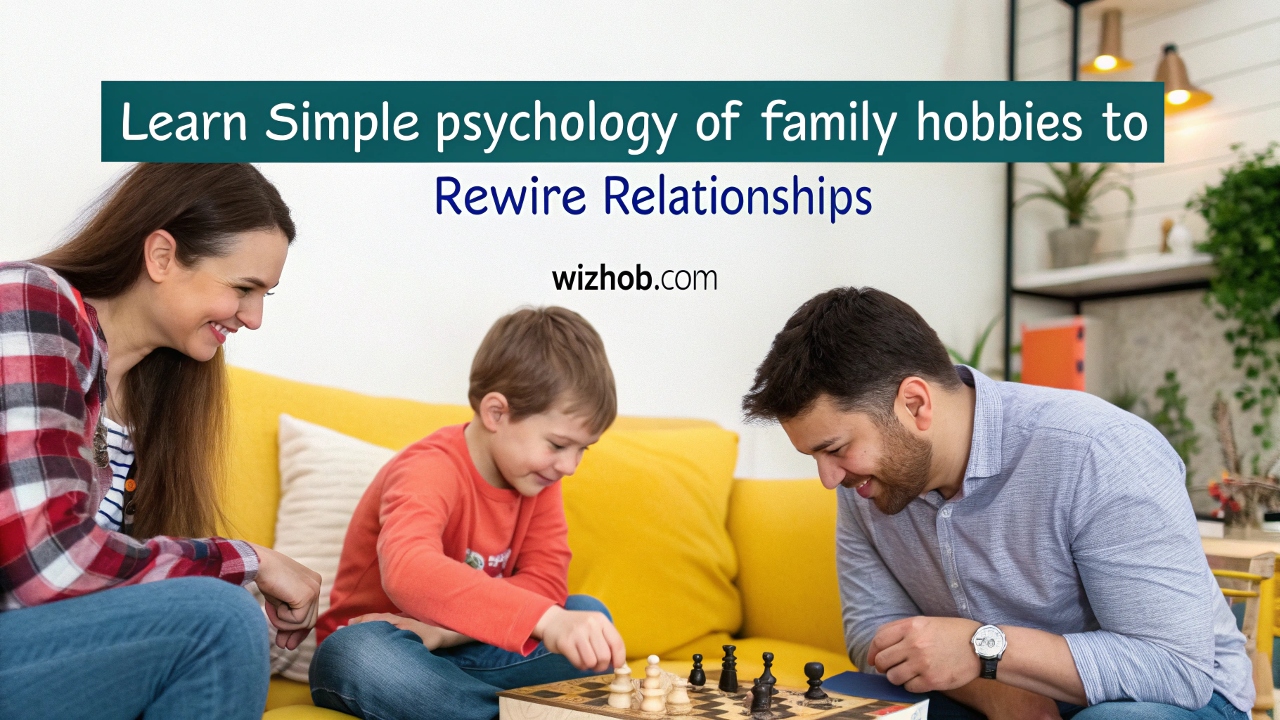Family hobbies are more than just fun. They are tools that shape how people relate to each other. When families engage in shared activities, they build emotional bonds, improve communication, and develop trust. The psychology behind family hobbies explains why these simple routines can repair strained relationships and strengthen healthy ones.
Why Family Hobbies Work
Family hobbies create shared experiences. These experiences help people feel connected. When family members do something together, they learn to cooperate, listen, and support each other. This builds emotional safety, which is the foundation of strong relationships.
| Psychological Benefit | How Family Hobbies Help |
|---|---|
| Emotional bonding | Shared activities create positive memories |
| Trust building | Consistent hobbies show reliability |
| Conflict reduction | Fun routines reduce tension and improve mood |
| Communication improvement | Hobbies encourage open conversation |
| Identity shaping | Families form traditions and shared values |
How to Use Family Hobbies to Rewire Relationships
Step 1: Choose hobbies that require interaction Avoid passive activities like watching TV. Choose hobbies that involve talking, creating, or solving problems together.
Step 2: Keep it simple and regular Start with one activity per week. Even 30 minutes is enough. Consistency matters more than duration.
Step 3: Focus on emotional connection During the hobby, ask questions, share thoughts, and listen. The goal is not performance—it’s connection.
Step 4: Reflect after each session Talk about what went well. Ask how everyone felt. This builds emotional awareness and strengthens the bond.
Examples of Family Hobbies That Support Relationship Growth
| Hobby | Emotional Benefit | Suitable For |
|---|---|---|
| Storytelling | Builds empathy and shared identity | All ages |
| Cooking together | Encourages teamwork and patience | Parents and kids |
| Gardening | Teaches care and responsibility | All generations |
| Board games | Improves communication and trust | Kids and teens |
| Art projects | Supports creativity and expression | All ages |
| Nature walks | Reduces stress and promotes bonding | Families with kids |
| Volunteering | Builds compassion and shared values | Teens and adults |
| Reading aloud | Strengthens listening and empathy | Young children |
| DIY projects | Encourages collaboration | Parents and teens |
| Gratitude journaling | Builds emotional awareness | All ages |
Common Problems and How Family Hobbies Can Help
Problem: Lack of communication Solution: Choose hobbies that require talking, like storytelling or board games.
Problem: Emotional distance Solution: Use hobbies that create shared memories, like cooking or gardening.
Problem: Frequent conflict Solution: Try calming hobbies like nature walks or art projects to reduce tension.
Problem: Disconnected routines Solution: Schedule weekly hobby time to build consistency and emotional safety.
How Psychology Supports This Approach
Psychologists say that shared activities increase oxytocin, the bonding hormone. They also reduce cortisol, the stress hormone. When families do hobbies together, they feel closer and more relaxed. This makes it easier to talk, solve problems, and enjoy each other’s company.
Children who grow up with regular family hobbies tend to have better emotional regulation, stronger social skills, and more secure relationships later in life. Adults benefit too—they feel more supported, less isolated, and more connected to their family identity.
Final Advice
Start small. Choose one hobby that fits your family’s interests. Make it a weekly habit. Focus on connection, not perfection. Over time, these simple routines will rewire how your family relates, communicates, and grows together.
To start building stronger relationships through shared experiences, choose one simple family hobby today—and let connection become your new routine with Wizhob.com


